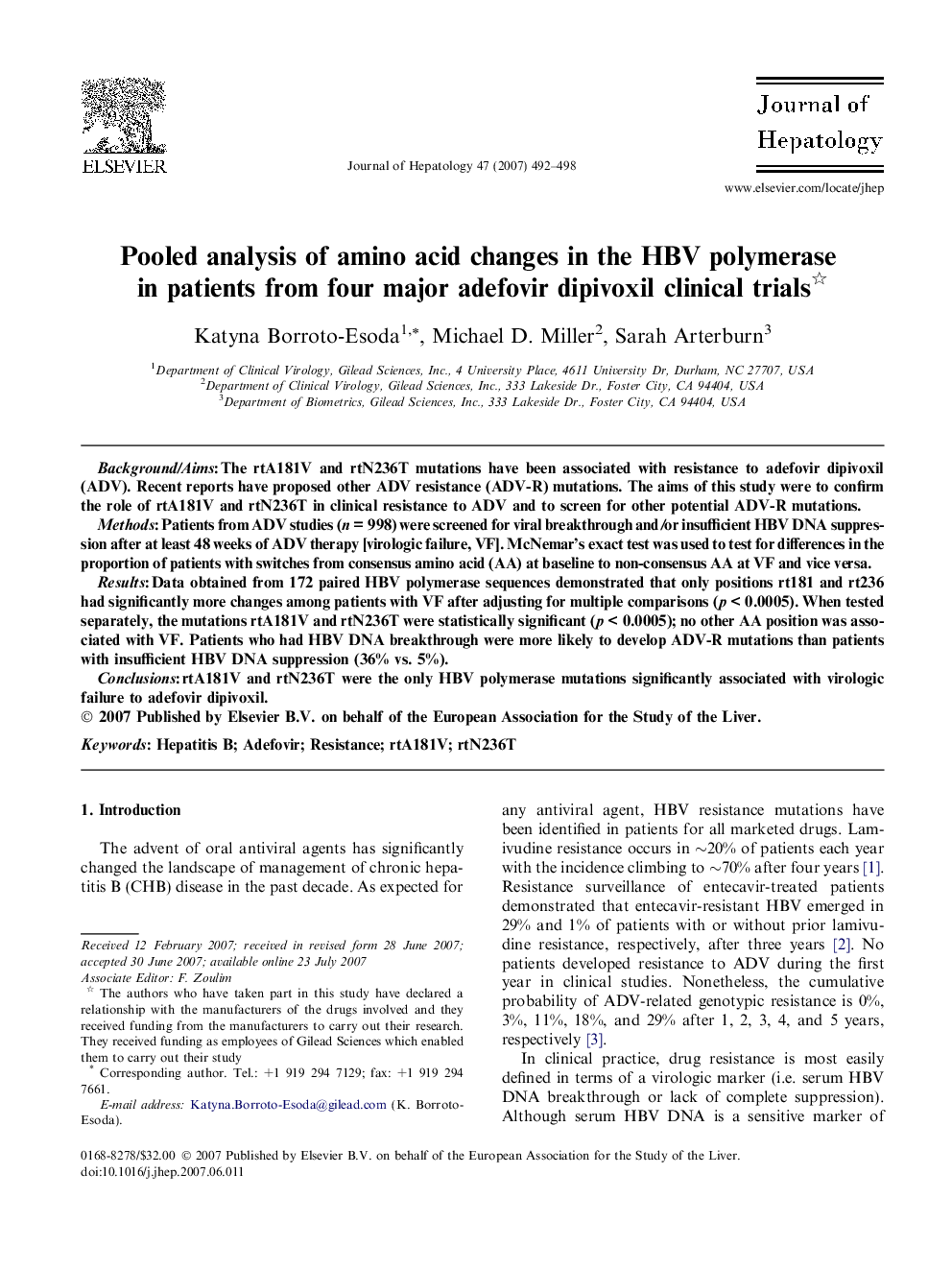| Article ID | Journal | Published Year | Pages | File Type |
|---|---|---|---|---|
| 3314417 | Journal of Hepatology | 2007 | 7 Pages |
Background/AimsThe rtA181V and rtN236T mutations have been associated with resistance to adefovir dipivoxil (ADV). Recent reports have proposed other ADV resistance (ADV-R) mutations. The aims of this study were to confirm the role of rtA181V and rtN236T in clinical resistance to ADV and to screen for other potential ADV-R mutations.MethodsPatients from ADV studies (n = 998) were screened for viral breakthrough and/or insufficient HBV DNA suppression after at least 48 weeks of ADV therapy [virologic failure, VF]. McNemar’s exact test was used to test for differences in the proportion of patients with switches from consensus amino acid (AA) at baseline to non-consensus AA at VF and vice versa.ResultsData obtained from 172 paired HBV polymerase sequences demonstrated that only positions rt181 and rt236 had significantly more changes among patients with VF after adjusting for multiple comparisons (p < 0.0005). When tested separately, the mutations rtA181V and rtN236T were statistically significant (p < 0.0005); no other AA position was associated with VF. Patients who had HBV DNA breakthrough were more likely to develop ADV-R mutations than patients with insufficient HBV DNA suppression (36% vs. 5%).ConclusionsrtA181V and rtN236T were the only HBV polymerase mutations significantly associated with virologic failure to adefovir dipivoxil.
